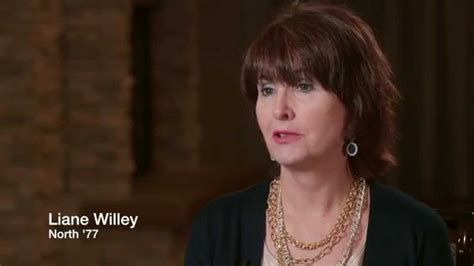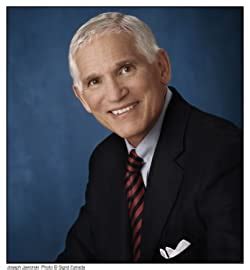Top 100 Interpersonal Quotes & Sayings - Page 2
Explore popular Interpersonal quotes.
Last updated on April 19, 2025.
I've come to recognize what I call my 'inside interests.' Telling stories. And helping people tell their stories is a sort of interpersonal gardening. My work at NBC News was to report the news, but in hindsight, I often tried to look for some insight to share that might spark a moment of recognition in a viewer.
The effects of unresolved trauma can be devastating. It can affect our habits and outlook on life, leading to addictions and poor decision-making. It can take a toll on our family life and interpersonal relationships. It can trigger real physical pain, symptoms, and disease. And it can lead to a range of self-destructive behaviors.
I want children who can make eye contact. I want children who know how to resolve conflicts with their peers. I want children who understand the dynamics of interpersonal relationships that are physical and tactile. I do not want children that only know how to interface with the world through a screen.
In many respects, the United States is the freest country in the world. I don't just mean in terms of limits on state coercion, though that's true too, but also in terms of individual relations. The United States comes closer to classlessness in terms of interpersonal relations than virtually any society.
The average person might articulate them differently, but we all think about interpersonal relationships in one way or another. Writers just express that in different ways and capture it in different ways. To some degree, we're all thinking about the same things. It's the zeitgeist. The trick, in a way, as a writer, is to hope that your interests in some sense link up with the culture around you.
The 'Inside-Out' approach to personal and interpersonal effectiveness means to start first with self; even more fundamentally, to start with the most inside part of self, with your paradigms, your character, and your motives. The inside-out approach says that private victories precede public victories, that making and keeping promises to ourselves recedes making and keeping promises to others. It says it is futile to put personality ahead of character, to try to improve relationships with others before improving ourselves.
The clerical work is par for the course. "Keep on file in numerical order" means throw in wastebasket. You'll soon learn the language. "Let it be a challenge to you" means you're stuck with it; "interpersonal relationships" is a fight between kids; "ancillary civic agencies for supportive discipline" means call the cops; "Language Arts Dept." is the English office; "literature based on child's reading level and experiential background" means that's all they've got in the Book Room; "non-academic-minded" is a delinquent; and "It has come to my attention" means you're in trouble.
The Beatles came and everybody forgot about everything else. That was a friendly, together, hip interpersonal music, introducing electric sustain, and it captured the imagination of everybody. So improvising, even though it was in a very rich period in terms of impact on the public, the '6Os were very hard times on players financially.
Empathy is like a universal solvent. Any problem immersed in empathy becomes soluble. It is effective as a way of anticipating and resolving interpersonal problems, whether this is a marital conflict, an international conflict, a problem at work, difficulties in a friendship, political deadlocks, a family dispute, or a problem with a neighbor.
In the family, in interpersonal relationships, even in friendship, faith is tremendously important. If you have a partner who you believe is a good person, then it is your duty to have faith in them until the end, despite the fact that they might have done some bad things. And you have to support and believe in your children.
Certainly, people can get along without siblings. Single children do, and there are people who have irreparably estranged relationships with their siblings who live full and satisfying lives, but to have siblings and not make the most of that resource is squandering one of the greatest interpersonal resources you'll ever have.
Exploring Feelings for Young Children with High-Functioning Autism or Asperger's Disorder: The STAMP Treatment Manual offers practical recommendations and creative practices that will certainly help young children with high functioning autism or Asperger's syndrome overcome their struggles with the really tough issues blocking their positive growth and development. Therapists, educators and parents caring for autistic children who endure a heavy load of anger, distrust, difficult interpersonal relationships, poor self-esteem and self-doubt need this excellent book.
When someone comes to me seeking help I want to learn everything I can about them. I'm interested in their physical, emotional, interpersonal, social, sexual, economic, and spiritual aspects of their well-being. I want to know about their hopes and dreams as well as their stresses, fears, and challenges.
[Internet] technology, like anything else that mankind creates is a tool and that tool can be used for good or for evil, like a light saber. Technology is supposed to bring people together, streamline things and make life easier and in a lot of ways it does that. However, technology can also disconnect you from other people and break down the social network, the real social network of family and friends and interpersonal communication, and isolate people, make them feel alone, make them feel small. So it's a tool that needs to be used correctly.
We often say that someone has exceptional political or social savvy, but what specific cognitive skills allow these people to handle interpersonal situations so effectively? Typically, socially skilled people are exceptional at recognizing underlying agendas, anticipating the probable effects and likely unintended consequences of a chosen course of action. These specific capabilities determine one's "people smarts."
What does it mean to have a healthy relationship? It's such a strangely clinical way of talking about interpersonal dynamics, like you can do a white blood cell count and say, 'No, it's not looking good for that one.' It's impossible to have a loving relationship in which you never cause pain and no pain ever is caused to you.
Marriage is a lot of things - a source of love, security, the joy of children, but it's also an interpersonal battlefield, and it's not hard to see why: Take two disparate people, toss them together in often-confined quarters, add the stresses of money and kids - now lather, rinse, repeat for the rest of your natural life. What could go wrong?
Advances in the technology of communications have proved an unambiguous threat to totalitarian regimes: Fax machines enable dissidents to bypass state-controlled print media; direct-dial telephone makes it difficult for a state to control interpersonal voice communication; and satellite broadcasting makes it possible for information-hungry residents of many closed societies to bypass state-controlled television channels.
Avoidance behavior is a response designed to protect the infant from behavioral disorganization. If we transfer this concept to adult life, we can see that an avoidant infant might very well develop into a person whose principal need was to find some kind of meaning and order in life which was not entirely, or even chiefly, dependent upon interpersonal relationships
Sometimes people will have a heart attack or some devastating personal loss, and after that, their political views change completely, and their behavior changes completely. It's not because somebody persuaded them to look at the graph on CO2 and temperature, and they finally saw the evidence and were persuaded. Something else changed that allowed them to see and to hear. What is that something else? How can we cultivate that in people without them having to go through a heart attack? The interpersonal things we do change the substructure of our systems. They are political.
External realities - worlds of politics, economics, law, war, interpersonal and social relations - are part of prose fiction. Fiction also includes the realities of a character's interior language. Poetry can encompass the same realities, but in compressed, intensified language, which creates entirely different degrees of emotional force.
The most constructive solutions are those which take into consideration the views of all persons involved and are acceptable to all. Such outcomes are the result of negotiation strategies where the needs of both sides are considered important and an attempt is made to meet all needs. These solutions are appropriately called Win-Win because there are no losers. While often difficult to arrive at, the process leading to such solutions builds interpersonal relationships, increases motivation and improves commitment. Win-Win solutions are the most desirable outcomes of conflict resolution.
I learned that our deepest need is to overcome our aloneness and our separateness. We seek to escape from separateness in various ways. We seek conformity, mistaking it for union. This is a soul-crushing way to exist. Or we seek union through orgiastic states - drugs, alcoholism, overwork - or through creative activities. But the ultimate escape from separateness is through interpersonal union.
For just as some people want a purely spiritual Christ, without flesh and without the cross, they also want their interpersonal relationships provided by sophisticated equipment, by screens and systems which can be turned on and off on command. Meanwhile, the Gospel tells us constantly to run the risk of a face-to-face encounter with others, with their physical presence which challenges us, with their pain and their pleas, with their joy which infects us in our close and continuous interaction.
Moral theory develops from the divine command theory of medieval Christian philosophy, mixed up with a bit of ancient pagan virtue theory, to the purely secular moral sentiment and interpersonal reaction theories of Smith and Hume, to Kant's attempt to restore command theory but with something supersensible in the individual rather than God as the source of authority.
If you're writing a book where you want to make a positive truth claim, then you should absolutely call it nonfiction or memoir. If you don't want to make that claim - if that's not what's important to you; if you're more interested in storytelling and interiority and interpersonal relationships than in objective, checkable facts about the world - then why wouldn't you call it a novel, and take advantage of what that gets you, of the extra freedom, of belonging to the tradition of the novel?
I do like crime thriller stories. That's because these stories have a lot of layers. There are always three sides to such stories... there is a truth, there is a lie and then there is the ultimate truth. Different human emotions and intense interpersonal relationships form the core of stories in this genre.
We're affable guys in They Might Be Giants. We're not gonna do the periscope-down thing, but it's a little bit mind-bending. The biggest struggle is trying to figure out a way to back up far enough in your answer that it can be read without the context of the question. Every declarative statement you see that comes out of an interview with somebody is actually in response to a question. So it's sort of like this very real interpersonal dance where one of the people involved is invisible.
Given the complexity of interpersonal relationships and institutions and the complexity of co-ordination of the actions of many people, it is enormously unlikely that, even if there were one ideal pattern for society, it could be arrived at in an a priori fashion. And even supposing that some great genius did come along with a blueprint, who could have the confidence that it could work
As medium for reaching understanding, speech acts serve: a) to establish and renew interpersonal relations, whereby the speaker takes up a relation to something in the world of legitimate social orders; b) to represent states and events, whereby the speaker takes up a relation to something in the world of existing states of affairs; c) to manifest experiences that is, to represent oneself- whereby the speaker takes up a relation to something in the subjective world to which he has privileged access.
Good relationships make people happy, and happy people enjoy more and better relationships than unhappy people.... Conflicts in relationships--having an annoying office mate or roommate, or having chronic conflict with your spouse--is one of the surest ways to reduce your happiness. You never adapt to interpersonal conflict; it damages every day, even days when you don't see the other person but ruminate about the conflict nonetheless.
While most of today's jobs do not require great intelligence, they do require greater frustration tolerance, personal discipline,organization, management, and interpersonal skills than were required two decades and more ago. These are precisely the skills that many of the young people who are staying in school today, as opposed to two decades ago, lack.






































